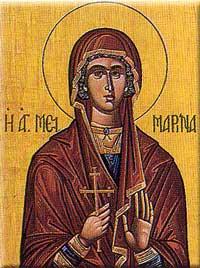
The Secret of Success
CARDINAL IVAN DIAS, ARCHBISHOP OF BOMBAY, INDIA. "In the Synod sessions, among the many shadows in our Church today, the decreasing numbers of church?goers, the waning interest in sacramental Confession, and the lack of catechesis has been mentioned. These problems have been in the Church always, albeit in different ways. On the other hand, the Church has also had persons who have tackled such situations in ways which can inspire us even today. Everyone knows of the saintly Cure of Ars and great apostle of the confessional, John Mary Vianney, and of Archbishop Fulton Sheen, the brilliant speaker who reached millions of people through his television and radio broadcasts, The secret of their resounding success was the many hours they spent in prayer before the Blessed Sacrament. They could well be role models for priests and bishops today. There is a Chinese proverb which says: instead of cursing the darkness, light a candle. As we are immersed in the darkness of spiritual and moral ills all around us, would it not be wonderful if bishops and priests all over the world would spend an hour in praise and worship before the Blessed Sacrament everyday interceding for themselves, for the faithful entrusted to their pastoral care and for the needs of the whole Church? Their flocks would certainly be edified and encouraged at seeing their shepherds practising what they preach on devotion to the Blessed Eucharist."
And Problems
CARDINAL JULIAN HERRANZ, PRESIDENT OF THE PONTIFICAL COUNCIL FOR LEGISLATIVE TEXTSPerhaps we should be more sensitive to the reasonable requests of the faithful who express their 'hunger for the Eucharist.' In fact, many of them complain of the difficulty of finding a confessor, even where priests are not lacking in the parish; they point out liturgical abuses and trivializing desecration of Eucharistic celebrations; they suffer because, contrary to canonical norms on public worship, churches are always closed except during community celebrations, and people cannot remain in adoration in front of the Blessed Sacrament, etc. Since justice consists in giving each their rights ('unicuique suum tribuere'), we ask our Lady - 'Speculum Iustitiae' - to help us guarantee our lay brothers and sisters the exercise of their rights: for the good of their souls, but also for the apostolic vigor of the entire People of God."
Passivity of the Laity
BISHOP EDWARD GABRIEL RISI O.M.I., OF KEIMOES-UPINGTON, SOUTH AFRICA. "In the conference area of Southern Africa we have discovered that the role of the small faith?based community is essential in the preparation for and the celebration of the liturgy, and also the place where the gift of the Spirit is lived out. ... However, because of the shortage of priests, there are many communities who only celebrate Mass once a month, or once every two months. ... We notice that the most sacred part of the liturgy, the Eucharistic prayer, is the least attractive part of the Sunday liturgy. Although it is the central part of the Eucharist, the climax, it has proved to be the anti?climax. The priest does it alone, and the laity move from active to passive participation. We would propose that there be some form of responsorial participation which allows the people to participate more actively than simply by a respectful silence. We are not proposing that the role of the celebrant be diminished but rather that the people be given a role by which they support the celebrant and enhance their participation."




